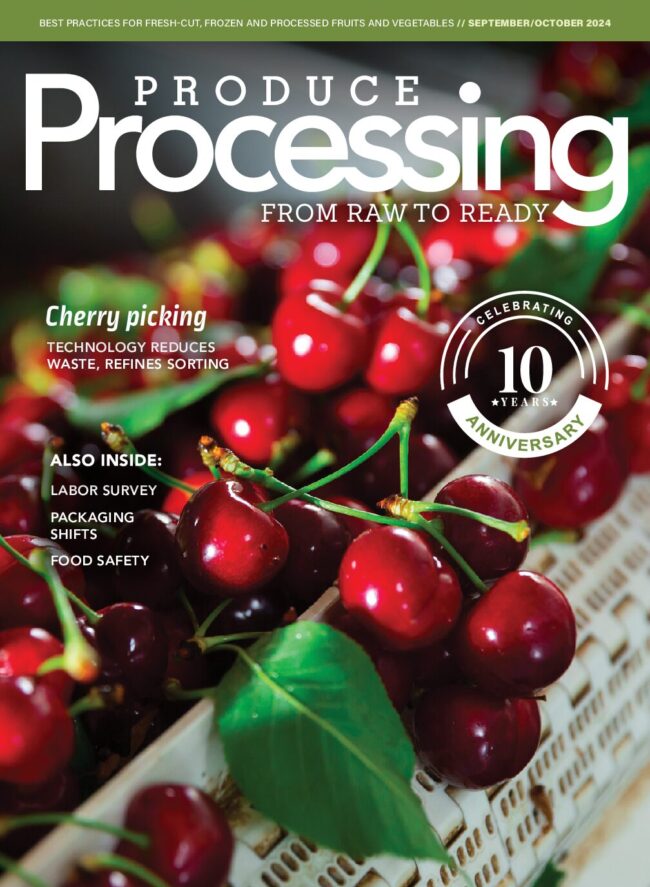Meeting demand for sustainable packaging a continuous balancing act
Every story that touches on sustainability and packaging immediately points to consumer behavior and reiterates that the next generation of consumers will demand less packaging.
Millennials have taken the lead as the generation that cares more about general sustainability and packaging sustainability than any other age demographic, according to Packaging Sustainability: A Changing Landscape from PMMI Business Intelligence, a division of PMMI, The Association for Packaging and Processing Technologies.
With Generation Z continuing to come of age and consuming goods for themselves, they have shown similar buying habits, voicing concern for recyclability, reduced product waste and reduced packaging waste. Together, they drive consumer packaged goods (CPG) companies to offer sustainable options, primarily by checking packaging labels for information about recycling and/or sustainability and putting the product back on the shelf if it doesn’t meet their standards. Displaying a willingness to put their money where their mouth is, coupled with the awareness it has raised among older generations, resulted in almost 60% of consumers saying they would pay more for eco-friendly packaging, according to PMMI’s report.
Some participants in the supply chain question whether consumers genuinely understand how much needs to change to produce a more sustainable product, package or equipment that runs friendlier to the environment. One contract manufacturer said, “Sustainability is consumer driven, but consumers don’t fully understand what sustainability means or the costs associated with delivering it.”
For example, bags and clear packaging for produce manufactured from recycled products will not be as durable and lessen after each round of recycling. The increased cost and decreased overall durability reveal that all recycled material is not right for every product. A new packaging material needs to be compatible with existing processes as a drop-in replacement to existing equipment.
For products like produce, where margins can already be slim, the willingness to spread this cost must come throughout the supply chain in order to be effective. Nearly two-thirds of the brand owners cited in the report indicated added costs as the No. 1 reason slowing down the process of applying more sustainable packaging solutions to their products.
A close partnership between produce supplier, brand producer and packaging machinery manufacturer is necessary for a successful sustainable package implementation. CPGs seek guidance from all ends of the supply chain — farmers, packaging materials manufacturers and OEMs — on processability, machine design and compliance with regulations. As they investigate packaging materials and initiate format changes, they turn to the fruit and vegetable suppliers for guidance on barrier properties and material quality. At its core, this comes down to a redesign of current packages using sustainable materials to replace non-recyclable materials or choosing packaging materials from renewable resources for a circular economy.
On the other end, they want OEMs to implement processes by which machine modifications are measurable against performance. CPGs need machine builders to design machines that can run a greater range of substrates as more recycled content is introduced on both primary and secondary packaging machinery. Thinner materials require gentler conveying along the entire line, and rejection parameters need adjustment for thinner materials. New machines need the flexibility to handle mono-materials as they gain popularity and sealing integrity cannot be compromised in a switch to more sustainable materials.
As the industry continues to navigate through the challenges posed by COVID-19, manufacturers and suppliers can visit PMMI’s COVID-19 resource page for helpful insights on ways to adapt and evolve. For more operational solutions, PACK EXPO International and Healthcare Packaging EXPO (Nov. 8-11) will serve as North America’s resource for the most advanced packaging technologies across a wide range of industries. Additional information and updates on the show, produced by PMMI, are available at packexpointernational.com.
 — By Sean Riley, the senior director of media and industry communications for the Association for Packaging and Processing Technologies (PMMI).
— By Sean Riley, the senior director of media and industry communications for the Association for Packaging and Processing Technologies (PMMI).
Top photo courtesy of PACK EXPO | PMMI.







